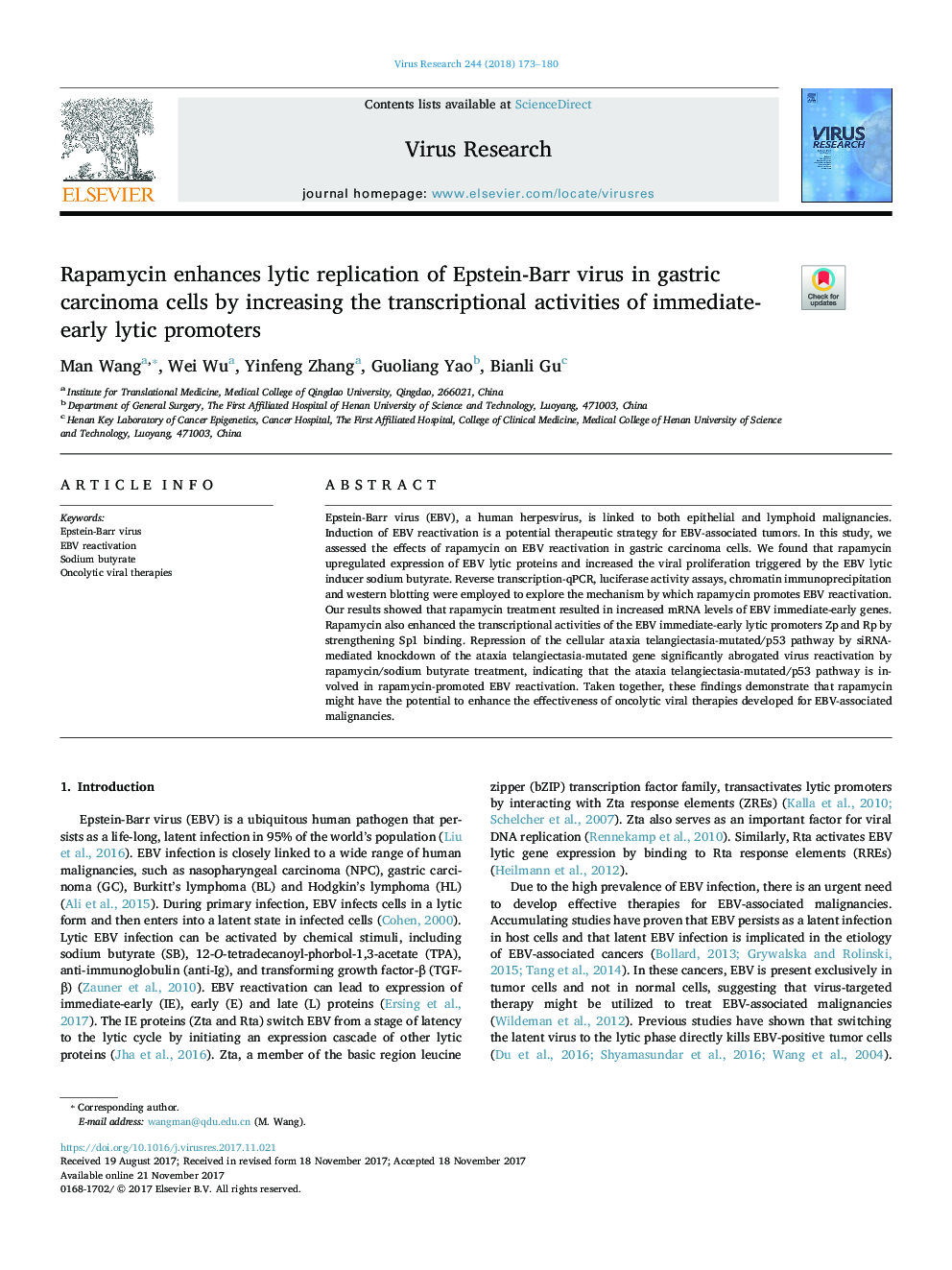| Article ID | Journal | Published Year | Pages | File Type |
|---|---|---|---|---|
| 8752006 | Virus Research | 2018 | 8 Pages |
Abstract
Epstein-Barr virus (EBV), a human herpesvirus, is linked to both epithelial and lymphoid malignancies. Induction of EBV reactivation is a potential therapeutic strategy for EBV-associated tumors. In this study, we assessed the effects of rapamycin on EBV reactivation in gastric carcinoma cells. We found that rapamycin upregulated expression of EBV lytic proteins and increased the viral proliferation triggered by the EBV lytic inducer sodium butyrate. Reverse transcription-qPCR, luciferase activity assays, chromatin immunoprecipitation and western blotting were employed to explore the mechanism by which rapamycin promotes EBV reactivation. Our results showed that rapamycin treatment resulted in increased mRNA levels of EBV immediate-early genes. Rapamycin also enhanced the transcriptional activities of the EBV immediate-early lytic promoters Zp and Rp by strengthening Sp1 binding. Repression of the cellular ataxia telangiectasia-mutated/p53 pathway by siRNA-mediated knockdown of the ataxia telangiectasia-mutated gene significantly abrogated virus reactivation by rapamycin/sodium butyrate treatment, indicating that the ataxia telangiectasia-mutated/p53 pathway is involved in rapamycin-promoted EBV reactivation. Taken together, these findings demonstrate that rapamycin might have the potential to enhance the effectiveness of oncolytic viral therapies developed for EBV-associated malignancies.
Keywords
Related Topics
Life Sciences
Immunology and Microbiology
Virology
Authors
Man Wang, Wei Wu, Yinfeng Zhang, Guoliang Yao, Bianli Gu,
